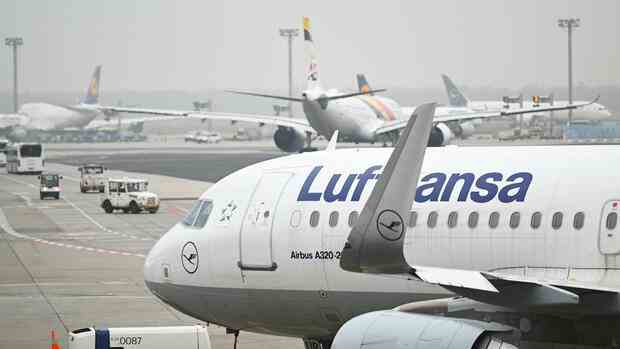As a result, customers are faced with rising ticket prices.
(Photo: dpa)
According to a newspaper report, the German aviation industry intends to do without fossil fuels by 2050. “The model of cheap flights at the expense of the climate has had its day,” said Ralf Fücks (Greens), former mayor of Bremen and head of the think tank Zentrum Liberale Moderne, to which the Federal Association of the Air Transport Industry (BDL) and the Federal Association of the Aerospace Industry ( BDLI) worked out plan to the newspapers of the Funke media group (Tuesday editions). The paper therefore provides for a gradual transition to clean air transport.
In the short term, traffic is to be shifted to rail and emissions are to be offset by the use of kerosene, according to the report. The first short-haul aircraft with hybrid drives could then take off in 2025. According to plans, synthetic fuel will be added to kerosene from 2030 onwards. Five years later, the first hydrogen-powered aircraft could take off. By the middle of the century, it should finally be possible to fly with green hydrogen.
The development has already begun, said Volker Thum, general manager of the BDLI, to the newspapers. For customers, the plans would mean rising ticket prices. “We propose a climate tax for the financing of synthetic fuels,” said Matthias von Randow, general manager of the BDL. The height should be based on the final destination of the trip. This could prevent a competitive disadvantage for the European aviation industry compared to hubs outside the European Union.
More: The great hunt: Why investors are targeting German IT companies
